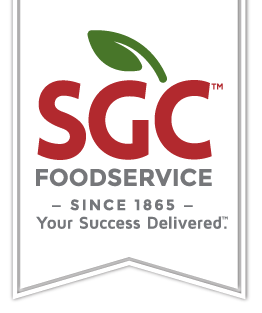There was a time Jose Andres was known for his food. As the head of ThinkFoodGroup, the celebrity chef oversaw restaurants from Washington DC to Vegas. But then Hurricane Maria struck Puerto Rico in 2017. That’s when Andres used his knowledge of feeding large numbers of people to literally feed an island.
His non-profit, World Central Kitchen, stayed in Puerto Rico for months. They produced more meals than FEMA, the Salvation Army, or any of the other traditional disaster relief agencies. Andres co-wrote a book, “We Fed an Island: The True Story of Rebuilding Puerto Rico, One Meal at a Time.” The main premise—the United States needs to revamp how they feed people after natural disasters. And Andres maintains that restaurant operators have a lot of knowledge to share.
Foodservice operators have long had a tradition of generosity. From community donations to fundraising dinners, the connection between restaurants and giving is hardly new. What is notable, though, is a rise of activism. In big and small ways, operators are changing more than their menus. They are changing the world.
Leading a restaurant provides a platform. Increasingly, operators are using the platform to impact issues. It’s translating to a hash tag; #StandingUpForSomething. As chefs and operators take a stand on issues ranging from fair labor to food waste, environment to gender, they’re sharing the efforts across social media tagged #StandingUpForSomething.
It’s a role that makes sense, if you think about it. “Chefs get stuff done,” said Katherine Miller, the James Beard Foundation’s senior director of food policy advocacy, in Restaurant Hospitality Magazine. “They identify problems every single day and they work to fix problems.”
Making a difference has appeared in a variety of ways across the restaurant world. Efforts have ranged from simple things like listing local food sources on menus, arranging to donate leftover products to food pantries, and increasing diversity in hiring to large scale efforts like manning disaster relief meal programs.
Most celebrity chefs have an organization they support with their efforts and advocacy. Rick Bayless looks out for farmers’ rights via his Frontera Farmer Foundation. Tom Colicchio gives his attention to solving hunger in America. Dan Barber is one of the leading voices on sustainability; the owner of Blue Hill Farm has lead the country in reducing food waste. The James Beard Foundation has even created a Chefs Boot Camp for Policy and Change. Participants receive tools, guidance, and training on acting as influential advocated.
Like most activism, foodservice efforts are rooted in passion. “Get to know the issue you really care about,” Miller said. “Find your personal passion. It will be more powerful if you really care about the issue.”

_qxg9ym0k.jpg)